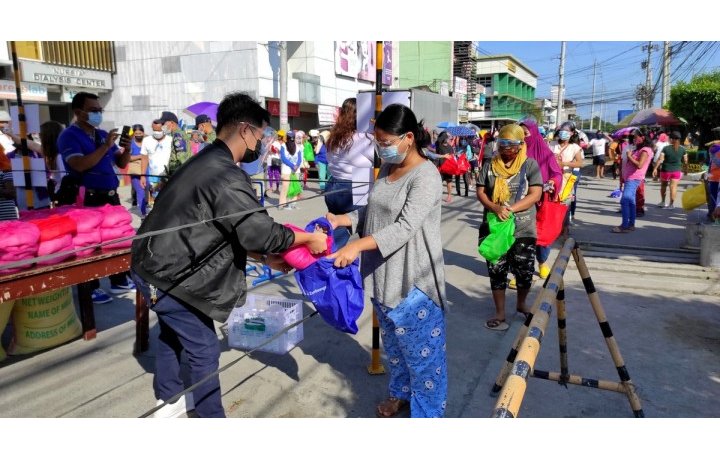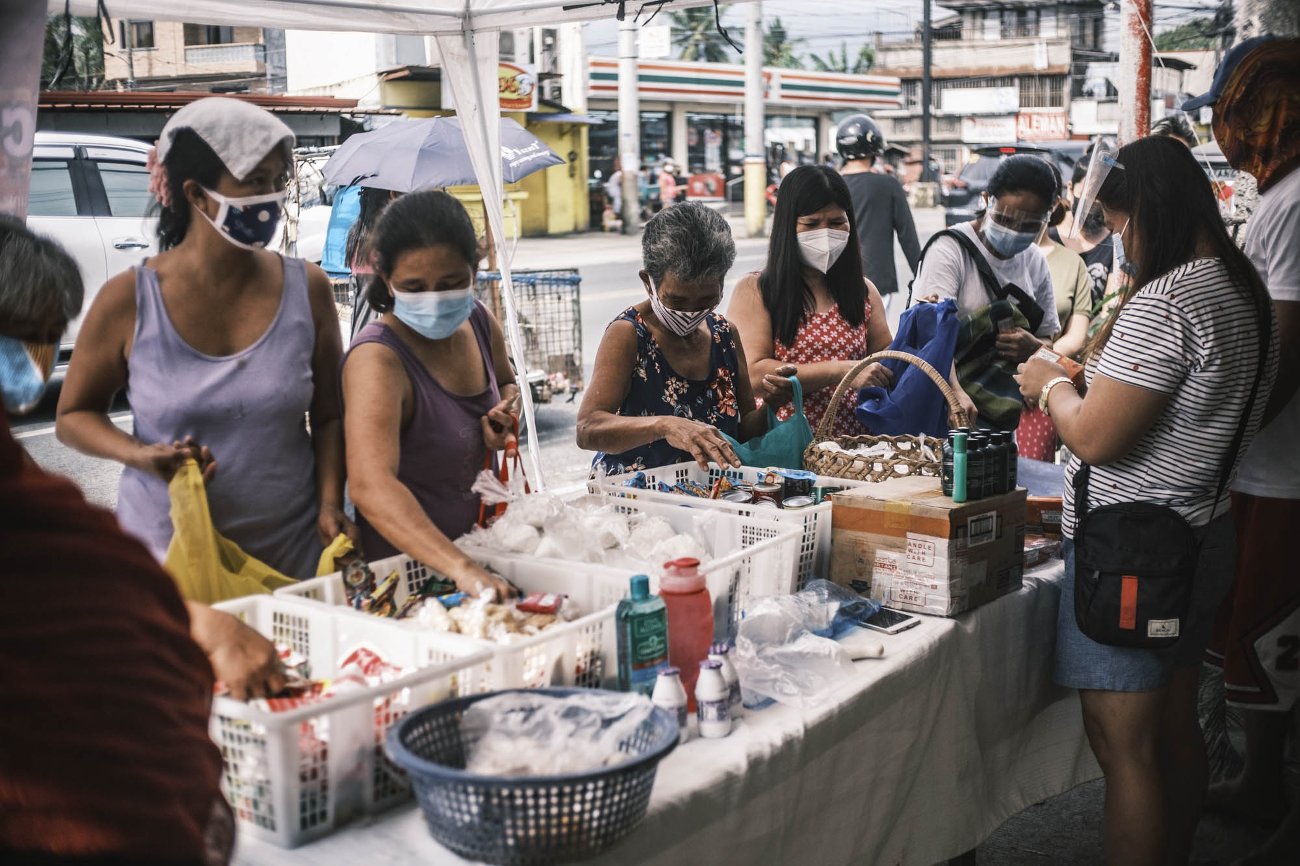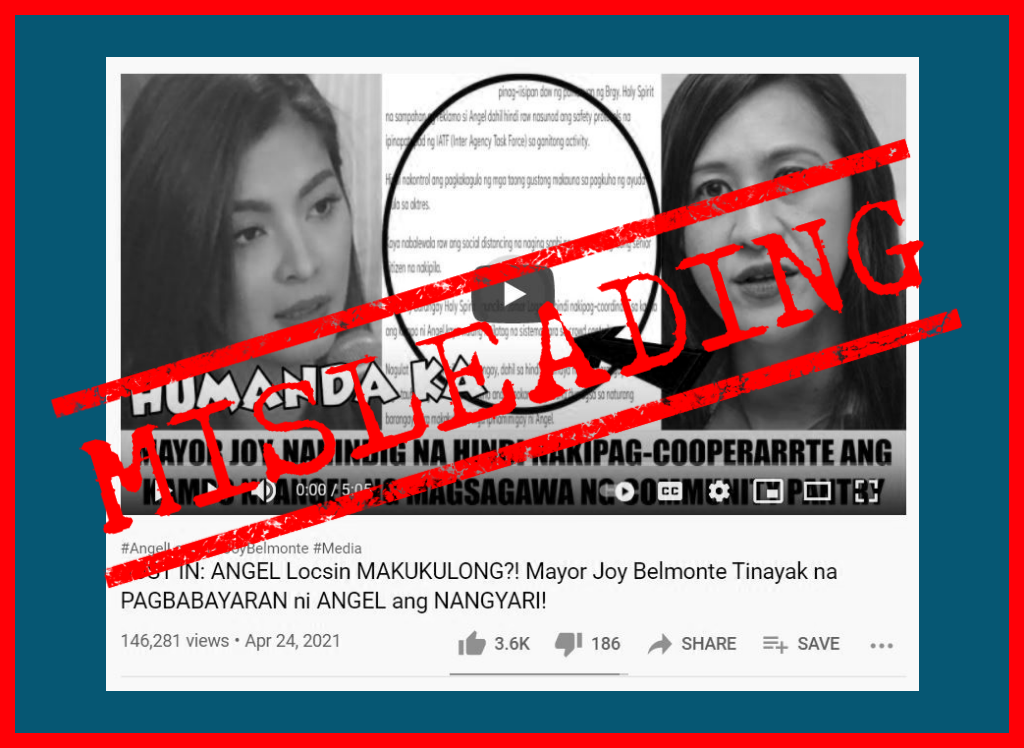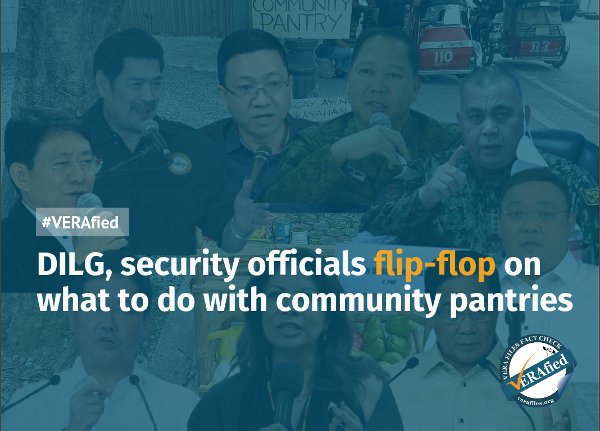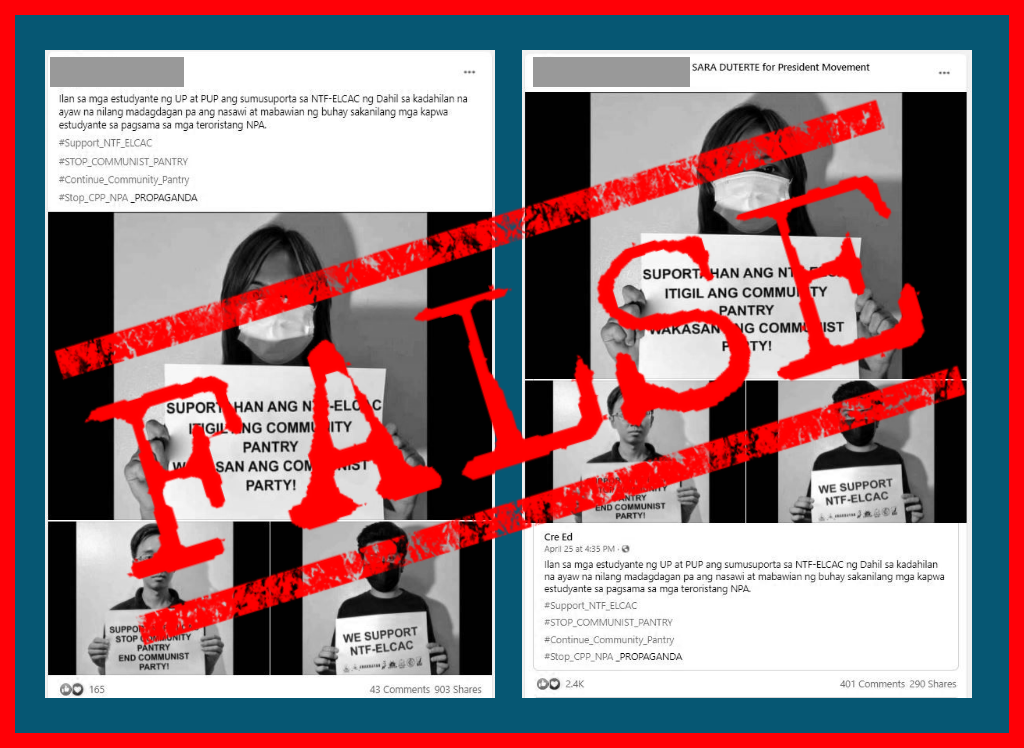The Maginhawa community pantry initiated by 26-year-old Ana Patricia Non surely became a blockbuster within a few days. Filipinos quickly embraced the concept, which is not really new, because the bayanihan (communal unity) spirit is second nature to us.
However, what started as a small gesture for others who are struggling to survive during this pandemic turned ugly when Army Lt. Gen. Antonio Parlade Jr., chief of the military’s Southern Luzon Command and concurrent spokesman of the National Task Force to End Local Communist Armed Conflict, maliciously linked the charitable initiative to the Communist Party of the Philippines.
The community pantry that was set up to help poor people who were severely affected by the coronavirus pandemic, he said, is like an apple that Lucifer or Satan, in a form of the snake, had offered to Eve.
Besides, he said, the community pantry’s slogan — Magbigay ayon sa kakayahan, kumuha batay sa pangangailangan — was an adaptation of a quote from Karl Marx in his 1875 “Critique of the Gotha Program” that goes, “from each according to his ability, to each according to his needs.”
Because of the red-tagging, Non stopped the Maginhawa pantry on the seventh day and resumed the next day. That time, around 300 other community pantries had already sprouted across the country, attracting long lines of people wanting to get what they needed for a day.
Non called a virtual press conference, which ended up as a venue for yet another ugly turn of events after GMA Network reporter Tina Panganiban-Perez asked her to respond to the red-tagging.
Perez’s question went this way: “Just to set the record straight, para rin wala nang masyadong tanong-tanong or duda sa ‘yo (so that there won’t be questions or doubts about you), meron ka nga bang (do you really have) links to communist groups . . . until now, or nagkaroon (have you ever had)? Ano ba ang basis ng red-tagging sa iyo (What is the basis for your red-tagging)?”
Netizens and a few senior journalists took the question to be offensive, insensitive and unethical. I beg to disagree. It was a sharp question that needed to be asked and answered, as most reporters who pounded the daily news beat have said in various social media threads on the issue.
Without batting an eyelash, Non answered that she had no link to the communist party. But she continued: “And napaka, pasensya na po, ang dumi po ng question na ’yan (And it’s so . . . I’m sorry, but that’s really a dirty question).”
Non’s description of Perez’s question as “dirty” was inappropriate and misguided. However, social media vampires pounced on Perez for the way she asked her question, but spared Non for calling it “dirty” without explaining what she meant by it.
When I heard Non say “ang dumi po ng question na ’yan,” I thought she was referring to the accusation by Parlade and others linking her to the communist movement. But in another interview, Non said what while Perez just asked what needed to be asked, she took her question “dirty” because “nalalagay ako sa alanganin (it places me in a dilemma).” She said she should not be explaining who and what she is, that it should be enough that her intention to help the needy was clear.
I believed that Non initiated the Maginhawa community pantry in Teachers Village, Quezon City, out of her good heart, out of a legitimate concern for her neighbors who could hardly eat one decent meal a day. It was a noble cause that has been replicated in more than 700 areas across the Philippines, and even in Filipino communities abroad. However, her “dirty” answer to Perez’s question gave me the impression that something else may have prompted her to do it, or that activists who have come to her defense have gone too far in shielding her from people like Parlade, or were afraid to have to explain their ideologies, too.
Unfortunately, it was Perez who ended up being bullied on social media, not only by netizens but also by senior journalists who did not like how she phrased her question. She was pilloried for doing her job, which she has been doing quite well despite the risks. Sadly, I cannot say the same thing of those who said she should have framed her question differently.
In my long practice of journalism, I learned that to be true to your audience, you have to be skeptical and critical, not patronizing and sensitive. You can get good stories by asking sharp, not apologetic, questions.
Perez’s question and Non’s answer have become the subject of an intense debate online and offline among journalists, and journalism professors and students. I would leave the netizens out because they may not have a full understanding of how journalists work.
A few journalism professors argued that Perez’s question should have been framed differently but, based on their social media posts, they were misquoting Perez. One even admitted that he has yet to listen or read the exact question, yet he was already commenting that it was not appropriate.
Of course criticism is always welcome because nobody is perfect in this industry. But criticism based on a wrong or assumed premise is simply disgusting. One professor in a premier university has even gone overboard to the point of bashing and bullying Perez for her to publicly apologize for her question to Non. He seems to be enjoying the engagement in his social media posts, unmindful of the accuracy of his claims.
A journalist friend has observed that there’s too much misplaced anger these days. People get angry at journalists for asking hard questions, at celebrities for speaking up against the system and at poor people for trying to find the means to survive.
Strangely, are these same angry people also angry at incompetent government officials who have made red-tagging a pastime and generating mis- and disinformation a daily ritual?
The views in this column are those of the author and do not necessarily reflect the views of VERA Files.
This column also appeared in The Manila Times.
